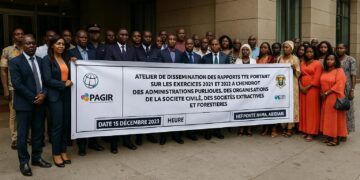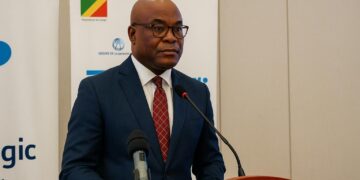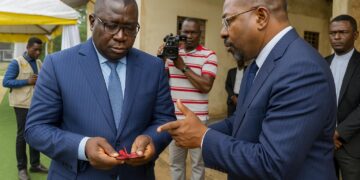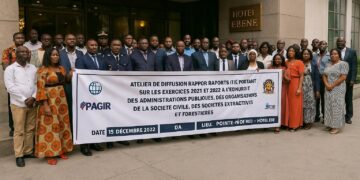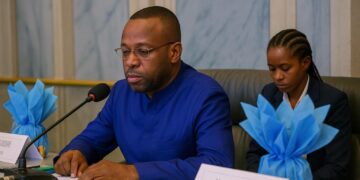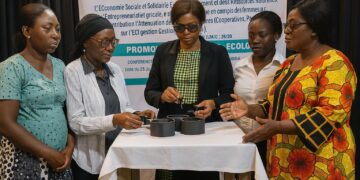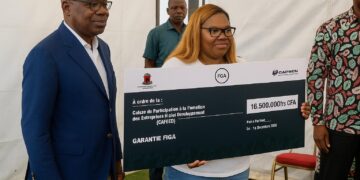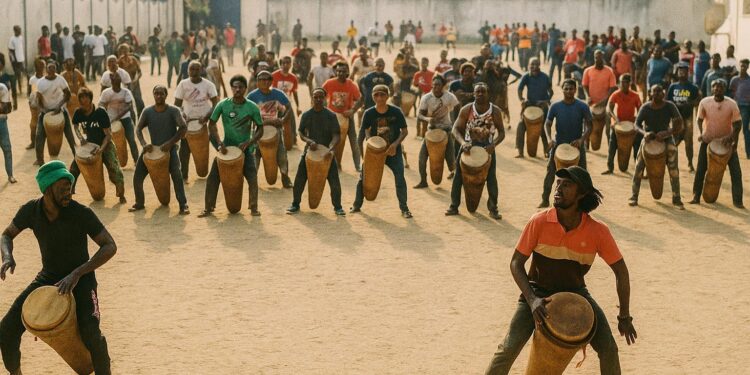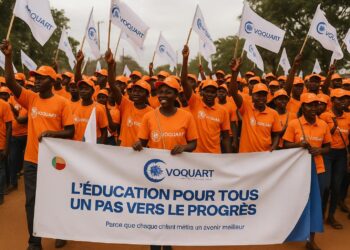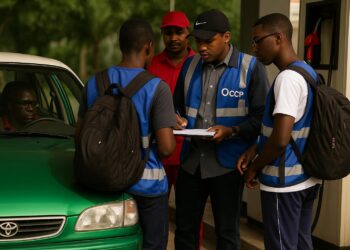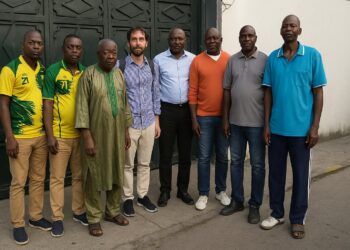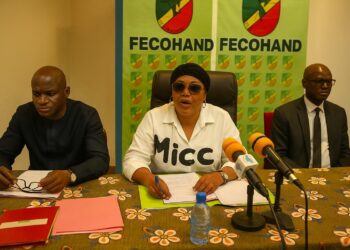A city rehearses its continental spotlight
In the shaded courtyard of the Sony Labou Tansi Cultural Centre, the July heat is punctuated by drum patterns and shouted counts of eight. Less than a week separates the dancers from the opening night of the 12th Pan-African Music Festival, yet every plié and heel-kick must land with near-military precision. The Palais des Congrès, an emblem of the capital’s post-conflict reconstruction, will soon host delegates from more than twenty African nations, a reminder that Brazzaville’s stages are again instruments of continental dialogue.
The Republic of the Congo positions Fespam as both a celebration of heritage and an act of quiet statecraft. When Minister of Cultural, Tourism, Artistic and Leisure Industries Marie-France Hélène Lydie Pongault visited rehearsals on 12 July, she described the performers as “ambassadors in motion” and underscored the government’s decision to underwrite their training. Her presence, flanked by Festival Commissioner-General Gervais Hugues Ondaye, offered a visual cue that culture remains anchored in the presidential development agenda articulated in the recent Plan national de développement 2022-2026.
A choreographic narrative of unity and modernity
Under the direction of Franco-Congolese choreographer Gervais Tomadiatounga, the opening tableau interlaces Kongo ancestral rhythms with Afrobeats bass lines, mirroring the continent’s demographic youthfulness. Rehearsal spaces are not without hurdles — uneven flooring, intermittent electricity and modest stipends — yet those constraints have welded a collective inventiveness that elicited Ondaye’s praise for “turning scarcity into scenic vigor”.
The creative team’s resolve resonates with a broader regional pattern. According to a 2023 UNESCO briefing, cultural and creative industries already contribute 1.3 trillion USD to Africa’s GDP and employ some 10 million people. By foregrounding Congolese folklore within a pan-African vocabulary, Fespam seeks to affirm that the Congo can simultaneously curate tradition and ride the crest of a continental creative boom.
Economic undercurrents in a digital era
The festival theme — “Music and Economic Stakes in Africa in the Digital Era” — reflects an acute awareness that streaming platforms and mobile payment systems have redrawn the revenue map for African artists. In 2023, sub-Saharan Africa registered the world’s fastest growth rate in recorded-music revenues, expanding by 34 percent (IFPI Global Music Report, 2024). The Ministry’s programme therefore intersperses concerts with master classes on intellectual-property management, cryptocurrency-based ticketing and cross-border digital marketing, targeting the estimated 5.2 million Congolese smartphone users.
Officials are discreet about budget lines, yet the financing model appears hybrid. State allocations are supplemented by sponsorship from regional telecom operators and pan-African banking groups, a structure mirroring the mixed-economy approach that has underpinned the government’s diversification strategy since the 2021 adoption of its national digital plan.
Minister Pongault acknowledged on social media that “fiscal headwinds are real”, but insisted the Festival would proceed because “culture is a common patrimony the nation must safeguard”. Her messaging chimes with President Denis Sassou Nguesso’s 2023 statement to the National Assembly that creative industries are “pillars of both identity and growth”.
Soft power and regional positioning
Brazzaville’s choice to mark Fespam’s 30th anniversary with a forthright economic angle subtly reaffirms the Congo’s diplomatic posture. Since the signing of the African Continental Free Trade Area, cultural exchange has become an arena for soft competition among capitals vying for brand leadership. With Kinshasa and Lagos commanding larger entertainment markets, Brazzaville’s advantage lies in convening dialogue and offering neutral ground, a role it honed during the days when it brokered Central African peace talks.
Foreign observers note the symbolism. “Fespam is a platform where geopolitical rivalries take the form of dueling orchestras rather than communiqués,” argues Cameroonian musicologist Élodie Ewono Mekongo, citing previous editions where cross-border ensembles served as informal confidence-building measures among CEMAC states.
Training dividends and diaspora engagement
Beyond the eight days of programmed events, Fespam operates as a talent incubator. Congolese participants receive mentorship from artists of the diaspora, including Paris-based kora virtuoso Senny Touré and Johannesburg producer Tania Mvula. Minister Pongault framed the arrangement in pragmatic terms: “Ordinarily, one pays for such instruction; here the State absorbs that cost so that our youth may elevate their craft.”
That investment is not merely altruistic. A 2022 African Union white paper estimated that a one-percentage-point increase in cultural-sector employment correlates with a 0.6-percentage-point reduction in urban youth unemployment. By underwriting professional training, the Congolese government implicitly addresses broader socioeconomic objectives, from labour-market inclusion to reputational capital.
Measured optimism ahead of the opening night
As the spotlight readies to bathe the Palais des Congrès on 19 July, expectation remains calibrated. Repairs to stage lighting continue, and some visiting ensembles have requested visa facilitation. Nevertheless, the prevailing mood in rehearsal halls is one of disciplined enthusiasm. “The audience will see that Congo can host an event of global calibre without forfeiting authenticity,” Tomadiatounga affirms.
Should the curtain rise on time, Brazzaville will reaffirm its capacity to translate cultural heritage into twenty-first-century influence. In doing so, Fespam 2024 may offer a resonant case study in how mid-sized African states employ creative diplomacy to navigate fiscal constraints, assert narrative sovereignty and ride the digital soundwave currently reshaping the continent’s economy.





